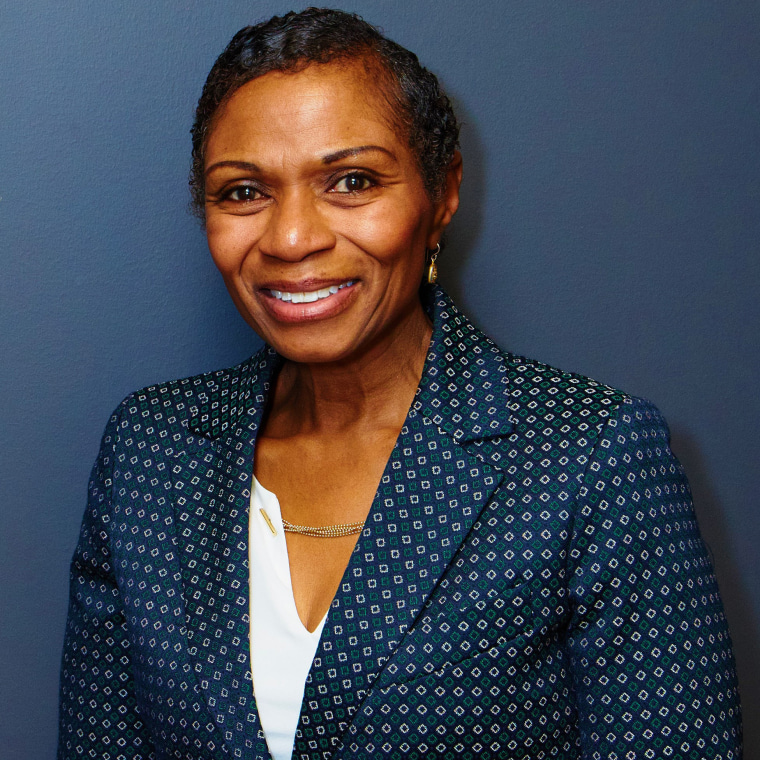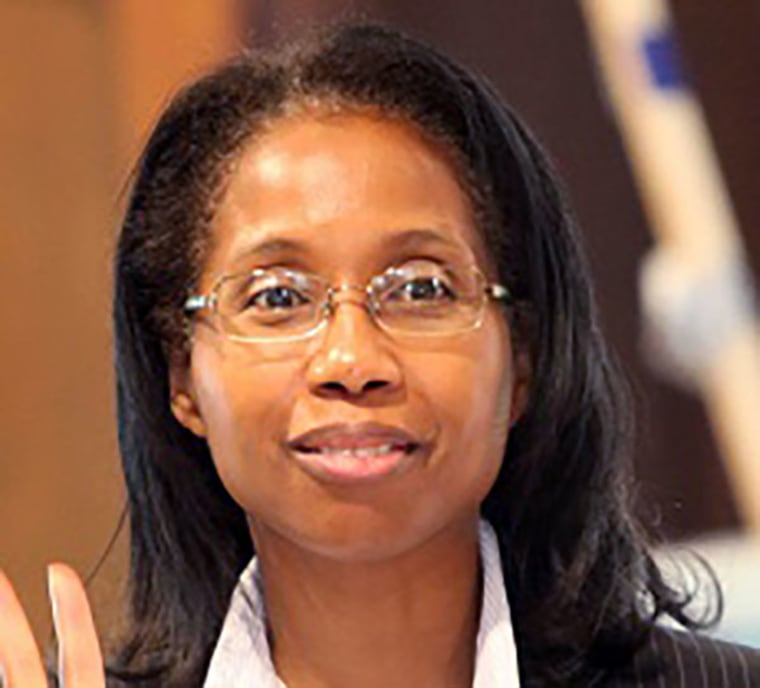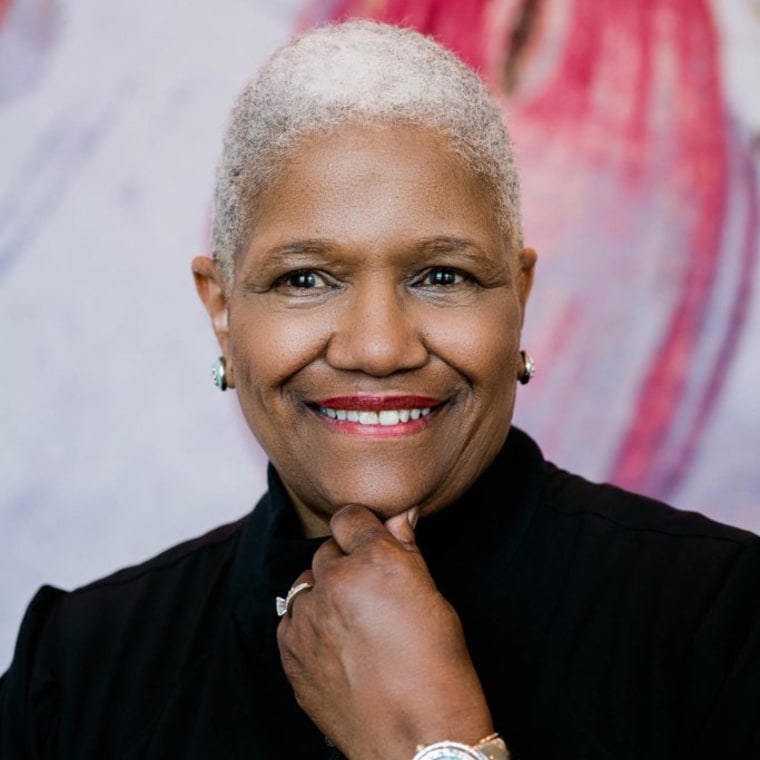For decades, Lisa C. Williams has used her voice to call out wrong, saving nearly 1,000 children and young adults from sex traffickers and successfully lobbying to get state legislation to protect survivors.

Now Williams has been appointed chair of the first International Survivors of Trafficking Advisory Council, or ISTAC, part of the Office for Democratic Institutions and Human Rights of the Organization for Security and Cooperation in Europe, headquartered in Warsaw, Poland. The little girl who saved two other children with her voice has an opportunity as chair to help spare the lives of thousands around the world.
The council, which launched in January, consists of 21 members from 14 countries, all of them survivors of human trafficking who have become leaders in the field. It will advise the Office for Democratic Institutions and Human Rights on how to improve efforts to combat human trafficking, including policy and legislation, as well as supportive services.
"The inclusion of survivor-leaders' lived experiences, witness and guidance is essential to developing promising and best practices that address the root causes of trafficking victimization and provide for restorative survivorship," Williams said at the launch.
Matteo Mecacci, director of the Organization for Security and Cooperation in Europe's Office for Democratic Institutions and Human Rights, said: "Survivors of trafficking are the first witnesses of how trafficking in human beings takes place. Through their experience and unique expertise, the ISTAC members will be able to provide invaluable advice, guidance and recommendations."
Mecacci said ISTAC will "play a crucial role in promoting the development of national and international survivor networks, which are currently still an underdeveloped potential."
Williams has tallied that she has helped nearly 1,000 people escape trafficking. Before she could save anyone, however, she had to save herself — again and again.
At age 7, Williams endured months of sexual abuse by an extended family member. She said she took on the repeated abuse to deflect it from two younger relatives until she was finally able to tell another family member. Williams said that when she reported abuse by a different close family member, she was left at a bus station with no money.
"My story is not unique," Williams said. "What is distinctive is that I always knew there was nothing wrong with me, that I did not commit a crime against myself."
After surviving homelessness and living with a variety of people in various places, she entered the military at 17, serving as an air cargo specialist in the Air Force and as a petroleum surveillance officer in the Army. She left active duty in December 1989.
Williams said she thought she'd simply enjoy her post-military life. But then she saw a photo in the newspaper of a 10-year-old girl in shackles who was charged with prostitution.
"I was thinking: You can't see this and know it and do nothing," Williams said.
She got friends together, raised money and opened a residential therapeutic care home for commercially sexually exploited girls on 7 acres outside Atlanta.

Pamela Perkins Carn was working for a nonprofit, organizing the faith-based community around issues like child trafficking, when she met Williams 12 years ago.
"Lisa did groundbreaking work here in Georgia," said Carn, owner of Creative Writing Unlimited, a multimedia writing and editing service. "She understands the issue is a collective but the child is an individual. Before it was popular, she was including the family in that restorative process."
Dr. Sharon Cooper, a developmental and forensic pediatrician, said: "Lisa never treated the girls like second-class citizens."
"Williams treated her young ladies as if they were staying at the best boarding school and made arrangements for them to attend college," said Cooper, who has visited hundreds of programs and testifies regularly in courts as a trafficking expert.
"She paid attention to every detail," Cooper said. "The girls she sent to college got single rooms and had access to a psychologist, peer mentor and a tutor. Her attitude was 'I'm going to help you help yourself.'"
Cooper encouraged Williams to share her knowledge by stepping onto the international stage, and then the opportunities appeared.

It took some nudging. But first, Williams established a scholarship fund at Boston University for undergraduates, with preferences for women from socioeconomically disadvantaged families or for women who have been affected by adverse childhood experiences.
She published a book last year, "Reshaped by Truth," a self-help guide to living intentionally.
She has also won numerous awards, including an honor as a "L'Oréal Paris Woman of Worth." In 2011 she was honored by the international nonprofit Points of Light, which focuses on solving serious social problems through voluntary service.
"She turned personal tragedy into triumph by creating programs that offer care for child and women victims of commercial sexual exploitation and trafficking," said Natalye Paquin, president and CEO of Points of Light. "She gave her time, talent and treasures to make the world a better place for a silent community in need."
ISTAC touts Williams' successful advocacy for legislation to help human trafficking survivors in Georgia. During the launch, Williams recounted the I AM Rachel Movement, named for a young survivor-leader whom she mentored.
"Firmly supported by a broad community, Rachel lent her name, face and witness to secure the passage of Georgia's Rachel's Law/Safe Harbor Act," said Williams, who said Rachel stood "in the gap for the thousands of other children whose voices had been silenced."
The constitutional amendment became Georgia law in 2017, the first law in the U.S. to be named in honor of a child survivor of sex trafficking. It provides for education and therapeutic and social services for child survivors, as well as prevention and protection programs for millions of children in Georgia.
Williams' experience with legislation may help her advise fellow survivor-leaders of the council about how to win support for policy changes and introduce measures in their countries.
"To be blunt, I would say it's more a matter of political will and a matter of setting aside enough resources than a matter of lack of knowledge that hinders us from much better results in combating human trafficking and providing help and support to victims," Per-Anders Sunesson, deputy director-general of Sweden's Health and Social Affairs Ministry, said during the launch.
Williams will speak up for people who she recently said are mistakenly called voiceless.
"They have voices," she said. "You have denied their voices, silenced their voices. But they are not voiceless."